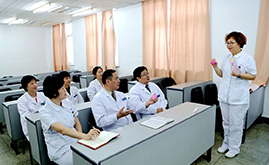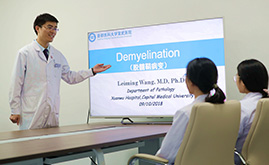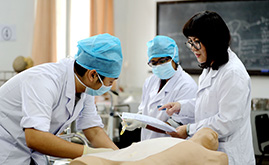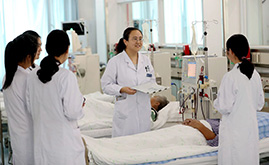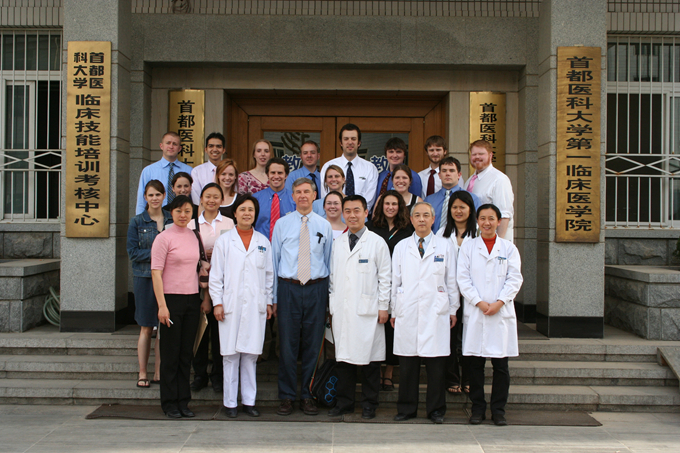Evidence-based Medicine Center
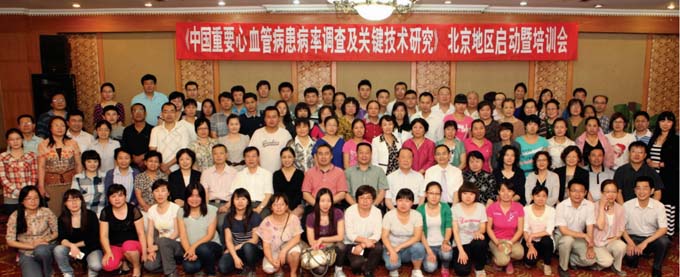
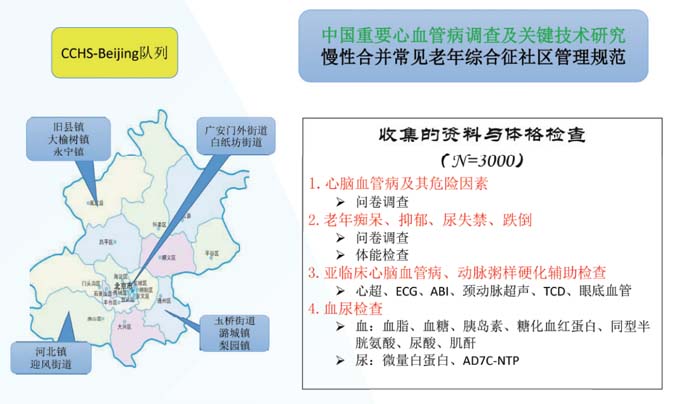
The Center was established in 2011, and there are 7 members currently. Three staff are PHD or post-doctoral of Epidemiology and Biostatistics, or Geriatrics. Two researches are the PHD or MS of Biostatistics.
Since the establishment of the center, a number of research have been performed by the grand or foundation from the National Natural Science Foundation, the national key project under the twelve five-year plan, the Beijing Science and Technology Commission special major projects, Beijing Natural Science Foundation, the capital health research and development of special (Key research projects). More than 50 research papers, and 22 of them were SCI articles were published as the corresponding author or first author, with a total cumulative impact factor of 59.9.
Working with the other departments of the hospital, we won the prize in the First Clinical Research Competition which organized by Beijing Hospital Administration in 2016. In addition, we also organized and hosted the “Science and Technology Month Activity” successfully in 2017. In the activity, a series of wonderful presentations on how to write SCI papers, and how to make better use of clinical research data to solve real world problems of clinical practice, and how to formulate a research question in clinical practice and further to verify the research hypothesis, as well as how to transfer the research evidence from beach to bed was delivered. Moreover, because of our excellent work, the Center was nominated as the Beijing Clinical Research Quality Promotion Center by Beijing Municipal Commission of Health and Family Planning in 2018.
The major aim of our department is to provide high quality evidence for medical care practices, and the major work is as follows.
1. Epidemiological research on Geriatrics. A cohort named “CCHS-Beijing (Cardiovascular and Cognitive Health in Middle-aged and Elderly Residents of Beijing)” was established during the period of 2013 to 2014. CCHS-Beijing is a population-based study of cardiovascular disease(CVD) and cognitive impairment in adults aged 55 years and older in Beijing. The main aims of the study are to investigate the prevalence rates of CVD, asymptomatic atherosclerosis, cognitive impairment, to validate the risk factors related to the onset and development of CVD, Alzheimer's disease (AD) and mild cognitive impairment(MCI). The study was designed to detect the traditional risk factors and new risk factors in this age group. Participants were recruited randomly from residential regions in the greater Beijing municipality area according to the average levels of development in Beijing, China in 2012 (based on socioeconomic, demographic, and geographical characteristics). Thorough physical and laboratory examination were performed at baseline (also the cross-sectional survey) to identify the risk factors such as hypertension, dyslipidemia, diabetes, as well as newly defined risk factors like elevated homocysteine, high sensitivity C-reactive protein, urine micro-albumin. Subclinical disease included atherosclerosis of carotid artery, intracranial artery, retinal vascles; subclinical heart diseases included left ventricular enlargement, arrhythmias, chamber hypertrophy and myocardial ischemia were also detected. Ankle-arm blood pressure were also measured. In addition, neuropsychological assessment were performed among all the subjects aged 65 years old and over. Baseline evaluation began during the period of August 2013 to Dec 2014. The follow-up examination will be due in five years later. The occurred and reoccurred CVD, AD and MCI events will be verified and validated during the follow-up period. The establishment of CCHS-Beijing cohort has provided an opportunity for our department to occupy a place in the domestic and foreign gerontology research, also laid a solid foundation for the future geriatric epidemiological, basic and clinical research. These findings will provide high-quality evidence for the decision making of elderly health care and medical service of Beijing in the future.
2. Health evaluation in the elderly. Collaborating with the Dalhousie University of Canada and Beijing Hospital, we introduced the concept of frailty into China in 2011.Two researches were sent to Canada to learn how to construct the ageing model. Using the data of local Beijing, the epidemiological characteristic of frailty of Beijing elderly, and the association between frailty and poor outcomes such as death, cardiovascular disease, Alzheimer’ disease, and fall were explored.
3. Teaching. The center is responsible for the postgraduate student training of Geriatrics in Capital Medical University. Also we are in charge of the undergraduate teaching course of evidence-based medicine of Capital Medical University.
4. The platform for design and statistics of clinical research.







